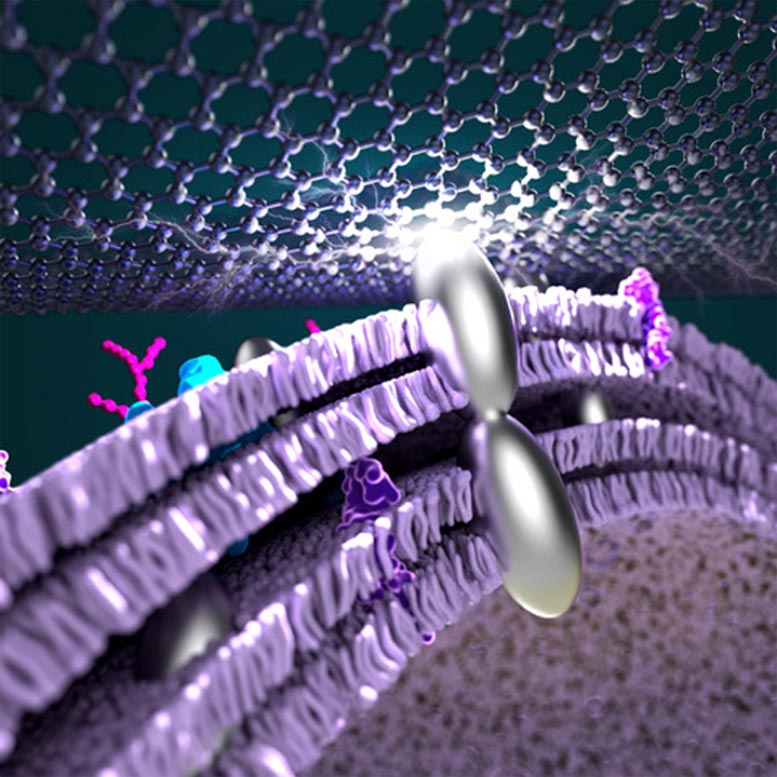
Artist’s concept of a microbial fuel cell with efficiencies boosted by silver nanoparticles. Credit: Image created by AKang, Sphere Studio. Copyright: Yu Huang and Xiangfeng Duan
A UCLA-led team of engineers and chemists has taken a major step forward in the development of microbial fuel cells — a technology that utilizes natural bacteria to extract electrons from organic matter in wastewater to generate electrical currents. A study detailing the breakthrough was recently published in Science.
“Living energy-recovery systems utilizing bacteria found in wastewater offer a one-two punch for environmental sustainability efforts,” said co-corresponding author Yu Huang, a professor and chair of the Materials Science and Engineering Department at the UCLA Samueli School of Engineering. “The natural populations of bacteria can help decontaminate groundwater by breaking down harmful chemical compounds. Now, our research also shows a practical way to harness renewable energy from this process.”
The team focused on the bacteria genus Shewanella, which have been widely studied for their energy-generation capabilities. They can grow and thrive in all types of environments — including soil, wastewater and seawater — regardless of oxygen levels.
“Living energy-recovery systems utilizing bacteria found in wastewater offer a one-two punch for environmental sustainability efforts.” — Yu Huang
Shewanella species naturally break down organic waste matter into smaller molecules, with electrons being a byproduct of the metabolic process. When the bacteria grow as films on electrodes, some of the electrons can be captured, forming a microbial fuel cell that produces electricity.
However, microbial fuel cells powered by Shewanella oneidensis have previously not captured enough currents from the bacteria to make the technology practical for industrial use. Few electrons could move quickly enough to escape the bacteria’s membranes and enter the electrodes to provide sufficient electrical currents and power.
To address this issue, the researchers added nanoparticles of silver to electrodes that are composed of a type of Founded in 1880, the University of Southern California is one of the world’s leading private research universities. It is located in the heart of Los Angeles.
“>USC, is also a senior author.
Duan, Huang and Weiss are all members of the California NanoSystems Institute at UCLA.